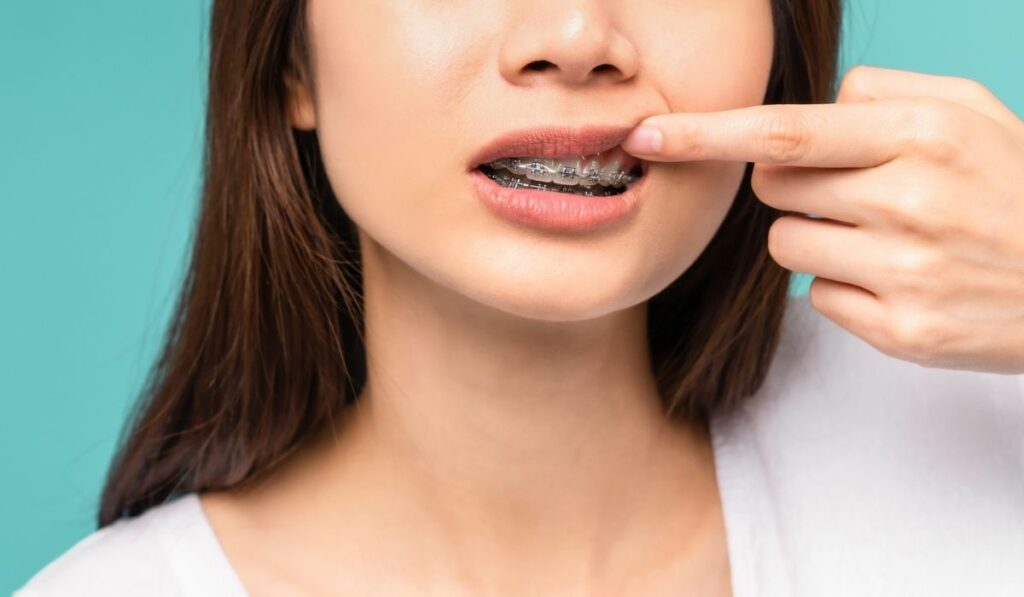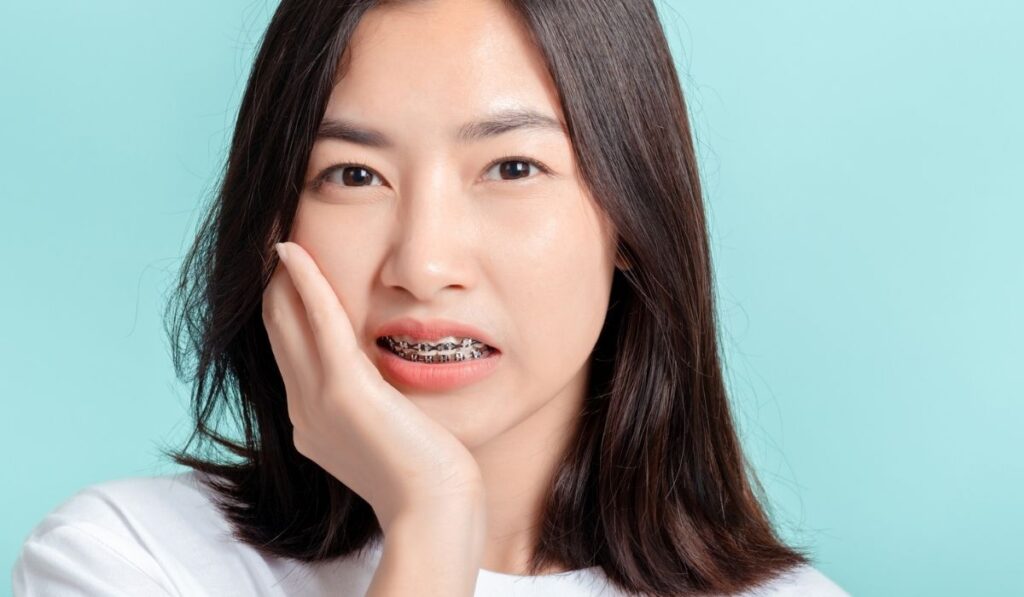Wearing braces is a common method used to correct issues like crowding and misalignment of the teeth. However, the first few days with braces can make you feel like you’re about to lose your teeth because of teeth loosening and mobility. This is a common experience, and you don’t need to worry.
Wearing braces doesn’t make your teeth fall out. It can feel like they might because your teeth start to adjust and move from the force of the braces. Your mouth will feel sore at the start, but you’ll get used to the feeling. Braces properly implemented by a professional won’t damage your teeth.
Nonetheless, taking care of your oral hygiene during treatment with braces can be tough. Improper care can lead to problems like tooth decay and gingivitis. You should know about all the tips and tricks to have a healthy smile after braces. Let’s take a look at how braces work and how to keep up with your oral hygiene while you’ve got them.
How Do Braces Move Teeth Around?

Dentists use dental braces for the treatment of a variety of dental problems. They are metal wires or brackets that fit the teeth and are attached to them for a long course of time. Dental braces also come in tooth-colored ceramic material so that they are less noticeable. Moreover, you can get clear aligners that can be removed and replaced at any time.
Here are some uses of dental braces:
- Fixing crooked teeth
- Fixing dental crowding
- Achieving a straighter smile
- Adjusting bite issues
- Realigning teeth
- Eliminating spaces between teeth
People have to wear their braces for 1-3 years on average. At first, braces can feel very strange but, with time, you’ll get used to having them.
For the placement of braces, brackets are bonded to the teeth. They’re used for holding the braces in place. After that, braces are adjusted until the desired result is attained, using wire (and/or clear aligners) and multiple dentist visits to achieve proper positioning.
The specific situation of your teeth decides what sort of braces you need. You might only need transparent removable aligners instead of braces. Your dentist or orthodontist will guide you through the process.
Can Your Teeth Fall Out While You’re Wearing Braces?
After you get your braces placed, it might feel like your teeth are loose and about to fall out. Don’t worry; this is quite normal and the feeling goes away with time.
Braces can and will cause mobility to the teeth, but when finished, the bone will reform around the teeth and the mobility will subside. Once you’re finished with braces, a retention retainer of some sort, permanent or removable, will be needed for life.
Your teeth feel loose with braces because the teeth start to move from the pressure applied by the braces. The movement can make them feel loose, but this is not a permanent feeling. With time, the teeth adjust themselves and become tight again.
As long as you get your braces from a professional orthodontist, you don’t need to worry.
The only thing you need to worry about is taking care of your dental hygiene. When you wear braces, it can be quite hard to clean the surrounding area. Therefore, you should make sure that you are brushing your teeth around the crevices to avoid plaque accumulation.
It’s also recommended to use an electric toothbrush and ortho flossers to help reduce your risk of decay and gum disease. We recommend the Platypus Flossers for Braces (on Amazon).
More frequent visits to the dentist for a cleaning is also advisable. Going every three months while you have braces can help keep your teeth in great shape.
Do Braces Damage Teeth Enamel?

Braces themselves aren’t damaging to the tooth enamel. But you can damage your enamel if you don’t take proper care of your oral hygiene while you have braces.
It is hard to brush your teeth when you have braces on. The crevices of metal braces are hard to clean and food particles can get stuck, leading to tooth decay and bacterial attacks.
Unless you have removable aligners, the chances of food particles getting stuck in your braces are high.
Nonetheless, there are some tips you can follow to avoid dental problems due to braces. The tips are:
- Give extra attention to your braces while brushing your teeth to make sure every crevice is brushed properly.
- Use a toothbrush designed for braces, like the Oral-B Pro 1000 CrossAction Electric Toothbrush (on Amazon). Electric toothbrushes are preferred for cleaning braces.
- Use a fluoride-based toothpaste to promote the strengthening of your enamel.
- Floss your teeth daily.
- Use a mouthwash after consuming acidic and citric food or beverages.
- Get your braces checked by your dentist regularly.
Do Braces Weaken Teeth Roots?
Root resorption, teeth shortening, and damage to the teeth roots can occur due to too much force from braces. Unbearable force and stress can cut off or limit blood supply to your tooth causing permanent tooth loss.
However, these things are unpredictable and certainly don’t occur in every patient. If you take care of your teeth after braces and follow the instructions of your dentist, you might be able to avoid such a situation.
Moreover, poor oral hygiene can damage your teeth, roots, jaw bone, and gums. It can lead to diseases that can weaken the root. This is an indirect disadvantage of getting braces because it can be hard to brush around braces, as we mentioned earlier. But you can prevent it by taking care of your dental hygiene and following the suggested tips to clean your teeth after braces.
You can get removable aligners if you don’t want to take this risk. They don’t put too much force on your teeth and you can always remove them while brushing and flossing your teeth.
When using removable aligners, you need to floss, brush, and rinse after every meal before putting your retainers back on. If there is food debris or plaque buildup on the teeth, the retainer can seal this in and your saliva is unable to reach those areas.
So removable aligners can actually increase your risk of decay if you’re not on top of your oral hygiene!


